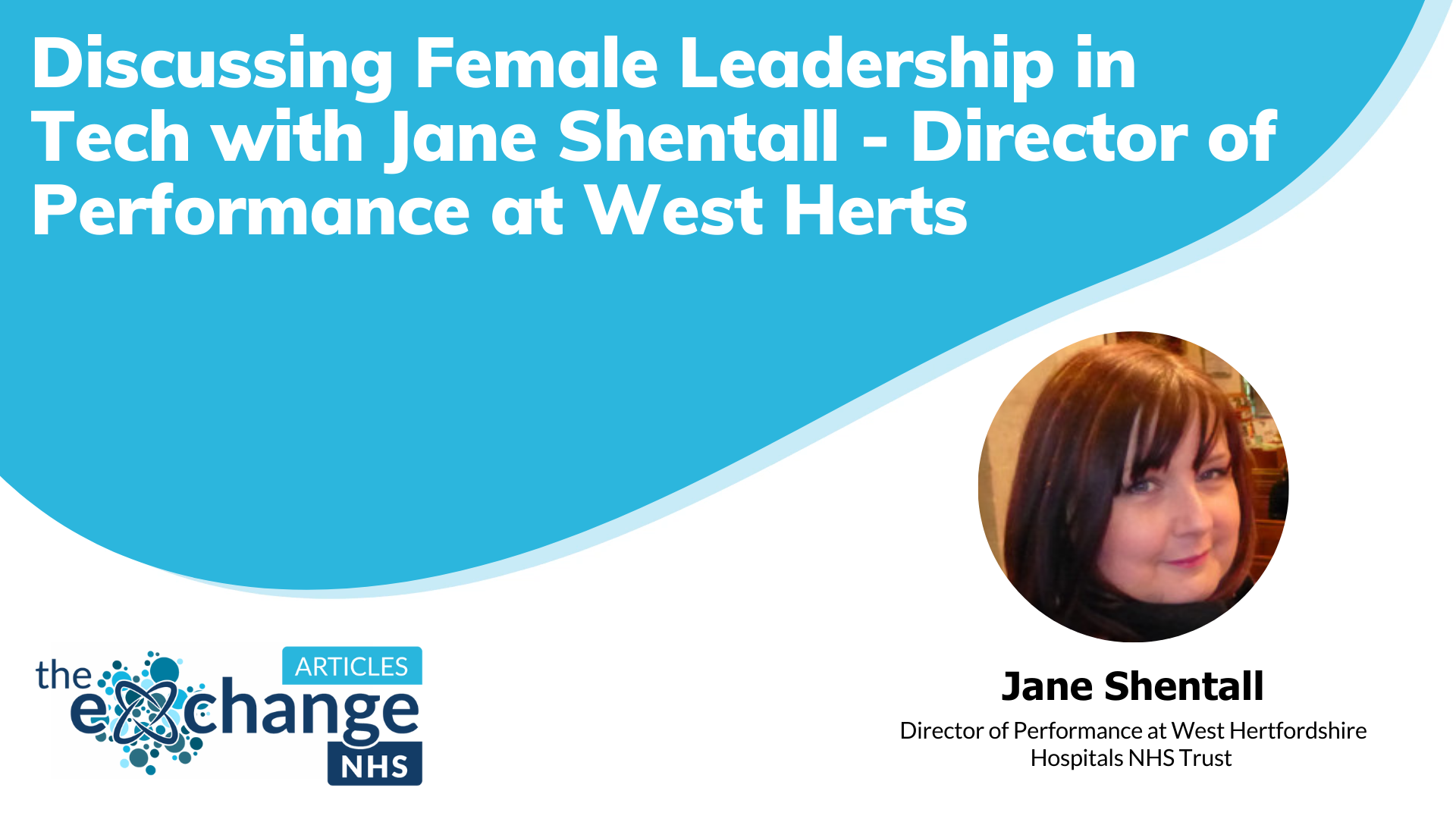
We spoke to Jane Shentall, Director of Performance at West Herts to discuss her role within the NHS, her experience of leadership and her advice to those aspiring to follow in her footsteps.
Jane’s story is part of a series of articles highlighting the careers of female tech leaders within the NHS. We’ve brought together these stories in an effort to prove that the route to leadership is never a straight line.
As a director of performance, Jane has a broad remit for operational performance, planning and delivery in the organisation, with oversight of performance frameworks and analysis, waiting times and improvement plans outsourcing, etc. Post COVID, her role has grown to support elective care recovery, improving performance and working with services on some of the transformational work that has come out of COVID.
Jane started out as a medical secretary in orthopaedics, before taking on some managerial roles within the department. A management course revealed to Jane that she could take on more responsibility, and so she moved into operational management as an assistant service manager. This entailed work with a range of surgical specialities, ensuring that there was always sufficient capacity for elective lists, juggling the conflict between elective and emergency care. After a few years in the position, Jane applied for a service manager position at the Royal National Orthopaedic Hospital. There, she developed relationships with clinicians and progressed quickly through the operational tiers. She worked her way up to a divisional manager position, overseeing a large number of services senior clinicians, operational teams and services. Eventually, she was asked to return to West Herts to support their elective care programme in 2015, where she worked on re-establishing principles and structure, particularly regarding RTT performance.
Following a change of CEO, Jane’s role developed slightly, giving her a broader view of what was happening across the organisation. She worked closely with the Information Team, Operational Teams, Services and Clinicians, etc, to develop performance frameworks and improvement prograrmmes.
“With my operational and performance background, I was really well placed to support services in their elective recovery. So working very closely with the chief operating officer, and some of my other director colleagues developing a recovery framework. And then supporting services with their recovery plans and delivery of the actions that will restore us to the pre COVID state as much as possible.”
Why the NHS?
“It’s really very, very rewarding, when you can support the development of people and services, and you see the output of your efforts, I have a real sense of needing to do things really well. I like where I work, it’s my local trust. So I have more of a stake in it than perhaps if I was working somewhere miles away. The local population includes my family and friends , so I feel that I’m doing something to make sure that they get the care that they need and deserve. Yes, it’s just the satisfaction of doing things really well. And having worked my way up from a hands on role, I know how important it is for people less senior in the organisation to know I have that insight. I think it adds to your authenticity at my level of seniority. And it’s really important, I think, to be able to see and appreciate how things look and feel from a different perspective. This organisation is where I learned how to do things well. And this is my opportunity to repay that.”
Bumps in the Road
“Of course, but we’ve got very, very good relationships here and they help you over those obstacles. And, being flexible. I think as long as you’re flexible, and open to new ways of working, then you can navigate your way through those bumpy periods. And you can learn as much from having a bad experience as you can from having a good experience. And it would be naive to think that you would never have any problems and you’d sail through your careerbut that’s not the reality.”
A Good Leader
“I think you’ve got to have empathy, you’ve got to see things from other people’s perspectives, you’ve got to understand the impact that you have on other people, you need to listen carefully and really hear what people are saying. And I think you’ve got to be able to do the things that you’re asking other people to do. And you’ve got to be prepared to roll your sleeves up and help people out. And you have to be kind. I think that’s particularly true when you’re really up against it.”
Jane’s Advice
“It takes hard work and a lot of resilience, particularly if you can’t see the immediate impact of your role,ut I think it’s always really rewarding to know that what you do translates somewhere down the line into how somebody is cared for, when they are in an unfamiliar environment, don’t always understand what is happening or what the future holds It can be a frightening time and knowing that the work my colleagues and I do can make it a less anxious time and sometimes perhaps a more positive experience is hugely rewarding. If you can go home at the end of the day knowing you did your best,and you did a good job and you might have made a little bit of a difference, then that can’t be a bad thing.”